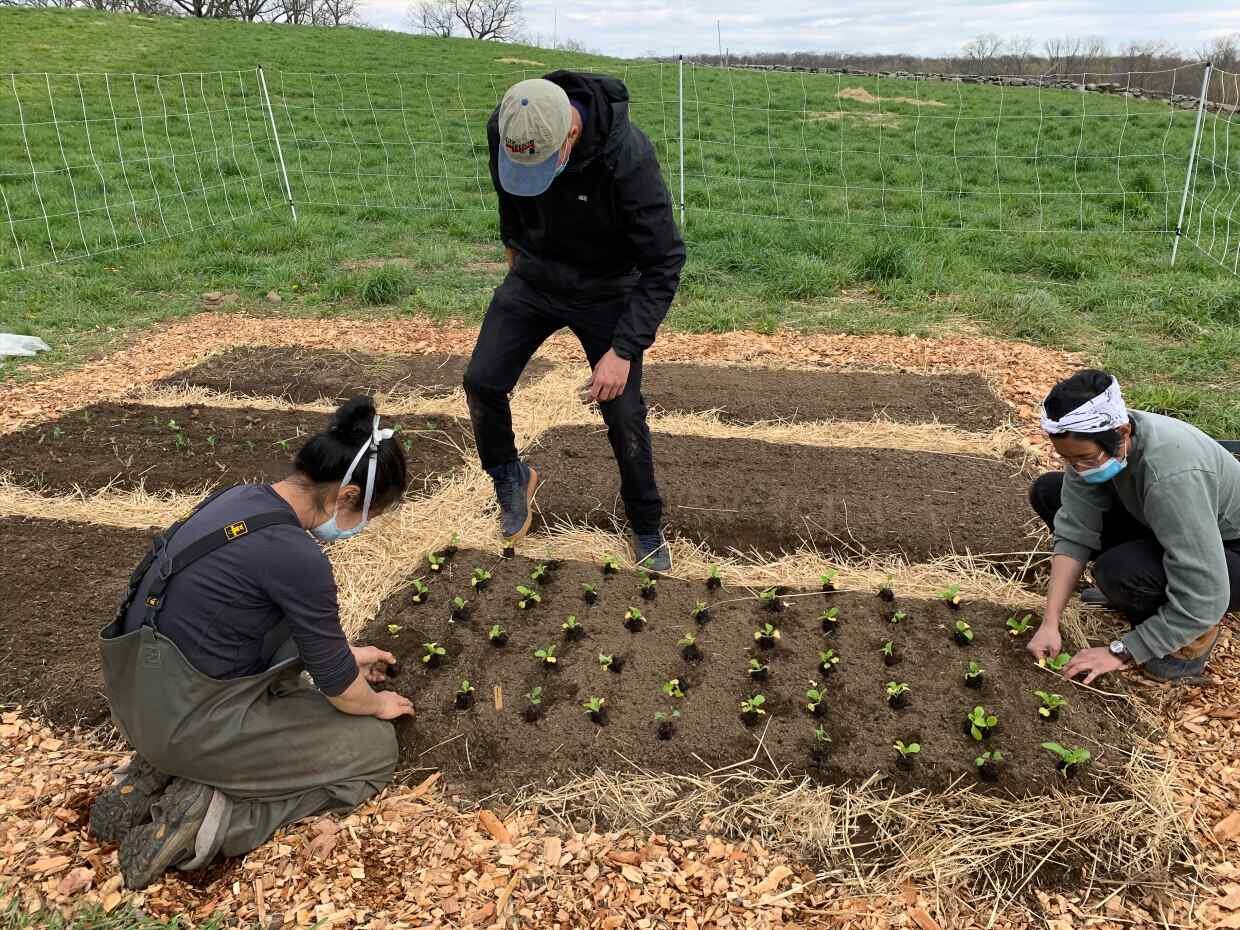The Cause: super-chef Dan Barber’s mission to save small farms
Bright orange persimmon and Green Zebra tomatoes. Red-hot Jedi jalapeno, mild Cornicabra and sweet Serrano peppers. Such are the bursting-with-colour-and-flavour contents of three mini kitchen gardens in Tarrytown, New York. All have been planted by junior cooks furloughed in the wake of Covid-19 by super-chef Dan Barber, proprietor of the award-winning Blue Hill restaurants in Greenwich Village and Westchester County.
Blue Hill at Stone Barns Farm | Image: Alice Gao
The trio were guinea pigs for the sustainability advocate’s lockdown-inspired grow-your-own initiative: resourcED. “When the restaurants closed in March, we surveyed 500 small farms across the US and 30 per cent said they were in jeopardy of bankruptcy due to reduced demand, as well as from the social-distancing measures that were put in place at farmer’s markets,” says Barber. Packaging and delivering enough individual farm boxes to match lost restaurant bulk orders proved impossible for many small farms during peak harvest.
Barber’s reaction was not only to set up a farm-box shop from his closed restaurant, but also to approach Jack Algiere of Stone Barns Farm (the location of one Blue Hill restaurant) to “see if he’d be game to have some of our cooks return and grow their own gardens”. The aim was to kickstart a worldwide educational initiative teaching young chefs (and the broader cooking-enthusiast community) about the importance of small-batch, rotational growing, to raise the profile of small farms and to support the independent food movement throughout the pandemic – and beyond. Algiere donated three pristine pieces of ground, and wrote a “recipe for a basic kitchen garden in a language that spoke to food lovers,” says Barber. And a truly grass-roots Kitchen Farming Project was born.
Jack Algiere of Stone Barns Farm wrote a “recipe” for a kitchen garden | Image: Adam Lupsha
Having launched on 11 May with just 50 gardens, the project grew to 2,800 across five continents and 66 countries in just three weeks. Now there are more than 3,200 participants, with a post-solstice recipe introduced to encourage the later planting of cabbage, kale, fennel, beet, coriander, Swiss chard and sunflowers. Barber’s starry roster of early supporters – Alain Ducasse, Daniel Humm and Yotam Ottolenghi among them – have added momentum to the social movement. “We now have chef-farmers in Slovenia and São Paulo, Australia, Japan and the UK,” says Barber. “I don’t even know chefs in Uganda or Greece, but gardens have popped up there as well, all by word of mouth.”
The Blue Hill cooks plant out seedlings
The garden “recipe” is simple: a 12 x 15 plot is divided into six suggested families of vegetables, each rotated over approximately a six-month period – and each chosen according to personal taste and individual location. But the common thread is a celebration of small farming, and the importance of diversity.
The Blue Hill team in their garden | Image: Adam Lupsha
“This doesn’t mean just diversity of flavours or textures, but also of planting and timing,” says Barber. “Diversity is at the heart of everything healthy – every ecosystem and environment. You can’t flood your menu with just brassicas or night shades, and so [growing vegetables] becomes a lesson for cooks to see the restrictions and pleasure the seasons impose on them. This isn’t just about building a garden, but building a strong one that can produce 1,000lbs of vegetables before it’s done.”
A Kitchen Farming Project in Kyoto
“Small farms are key. It would be an environmental disaster if the legacy of this epidemic was farming on an even more industrial scale,” says Yotam Ottolenghi, whose chefs are currently tilling, planting and harvesting everything from broad beans to sorrel – with “tomatoes on the way” – in the north London garden.
“I don’t know what the future holds,” says Barber. “But building your own kitchen garden helps to create a consciousness around food waste and space, and this moment exposes just how ludicrous it is to assume waste when the resources are so clearly threatened.”
“We hope this becomes a network that catalyses local and regional change,” adds Algiere, who is one of the farmers providing one-on-one gardening consultation for those emailing from all over the world. “We’re learning from nature and from each other’s practices, and at the end of the day, people understand why small farmers are so important to our food system.”
For now, a global corps of chefs and food lovers are planting and harvesting in the hope of supplying their own restaurants and home kitchens – as well as soup kitchens and schools – with their bounty.And those without a green space or green fingers can buy a food box (10 for $150) to donate to families in need.“This is a passionate group of social-change makers,” says Algiere. “Building a garden only takes one person. Growing something is a proactive step.”




